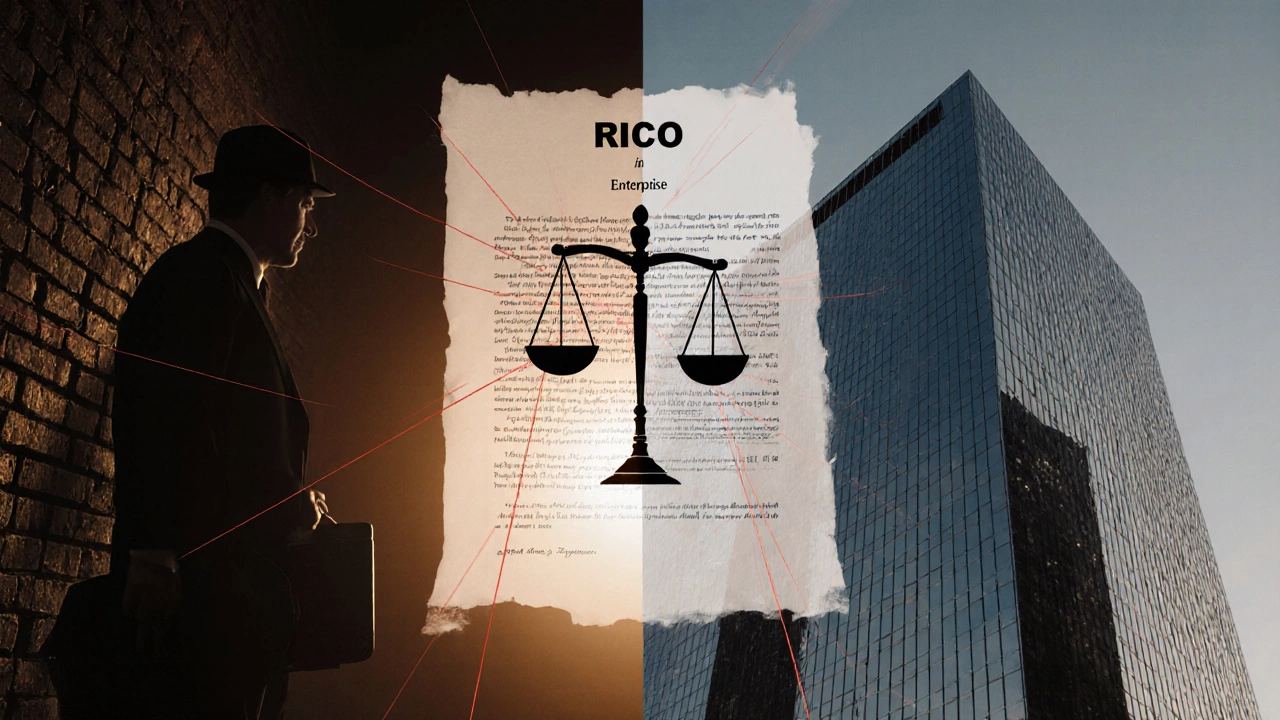Racketeer Influenced and Corrupt Organizations Act (RICO) Overview
When dealing with Racketeer Influenced and Corrupt Organizations Act, a U.S. federal law that criminalizes patterns of racketeering activity and the operation of illegal enterprises. Also known as RICO, it targets organized crime, fraud, and coordinated illegal conduct. The act often intersects with Federal Violation, Punitive Damages, and Federal Investigation, shaping how prosecutors build cases and how courts award compensation.
Key Concepts and How They Relate
RICO encompasses any organized effort that commits at least two predicate offenses within a ten‑year span – that’s the pattern requirement. To succeed, prosecutors must prove a "pattern of racketeering" and a direct link between the enterprise and the illegal acts. Because the law defines a "racketeering activity" broadly, it pulls in statutes ranging from mail fraud to money laundering. This breadth means a single case can involve multiple Federal Violation charges, each adding weight to the overall pattern. When a conviction happens, courts often consider Punitive Damages to punish the defendant beyond ordinary compensation, especially if the conduct harmed many victims. In practice, a Federal Investigation kicks off the process – agents gather financial records, wire taps, and witness statements to establish the illegal enterprise. The interplay of these elements creates a chain: the investigation uncovers violations, the violations satisfy the pattern test, and the pattern unlocks civil and criminal remedies, often including hefty punitive awards.
Beyond the core RICO framework, the act influences other areas of law that appear in our article collection. For example, consumer protection statutes such as the Consumer Rights Act in New Zealand or the UK's Section 75 of the Consumer Credit Act share the same goal of safeguarding the public from systematic abuse. When a company runs a fraudulent scheme that meets RICO’s predicate offenses, victims can pursue both criminal prosecution under RICO and civil recovery under consumer protection laws. Likewise, the concept of "federal violation" extends to offenses like tax evasion or cyber fraud, topics we explore in posts about cyber‑crime rankings and federal crimes. By linking RICO’s structural elements to these broader legal themes, you can see how a single federal statute can ripple through multiple legal domains.
The posts below draw from real‑world cases, recent rule changes, and practical advice across both U.S. and Indian law. Whether you’re curious about how a federal violation triggers a RICO case, what punitive damages look like in practice, or how a federal investigation is conducted, you’ll find concise explanations and actionable steps. Browse the collection to deepen your understanding of organized‑crime enforcement, consumer safeguards, and the intersecting statutes that shape modern legal strategy.

RICO Charge Explained: What It Is, Penalties & Defenses
Learn what a RICO charge means, its key elements, penalties, real cases, defenses, and civil remedies in a clear, actionable guide.